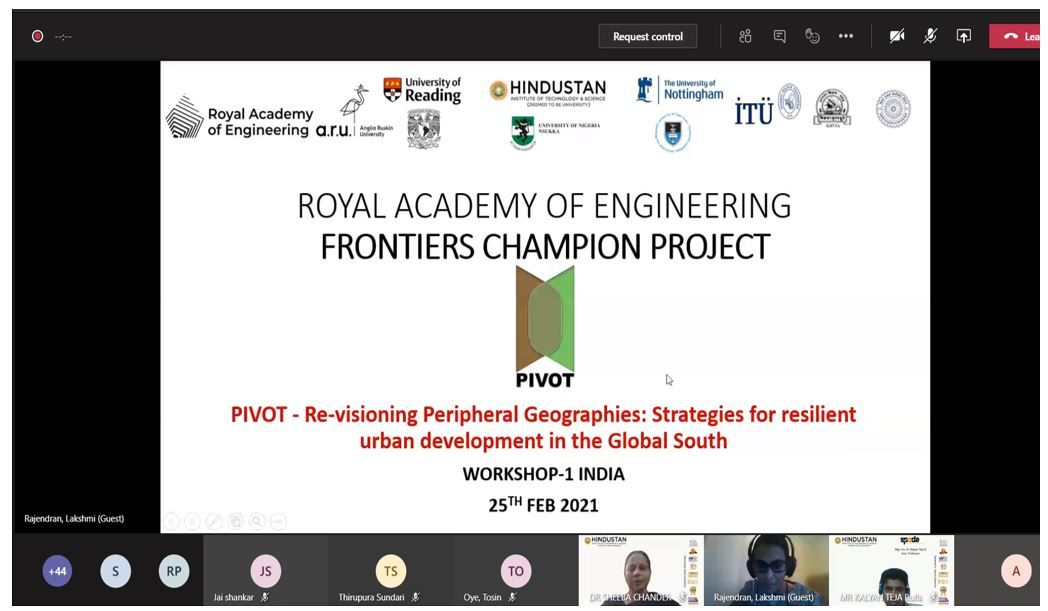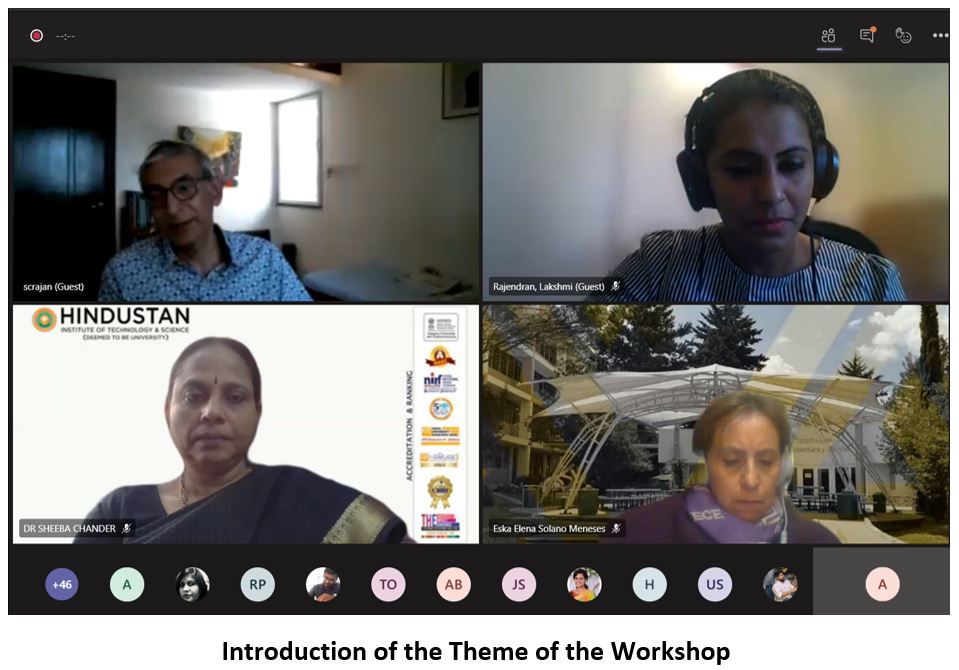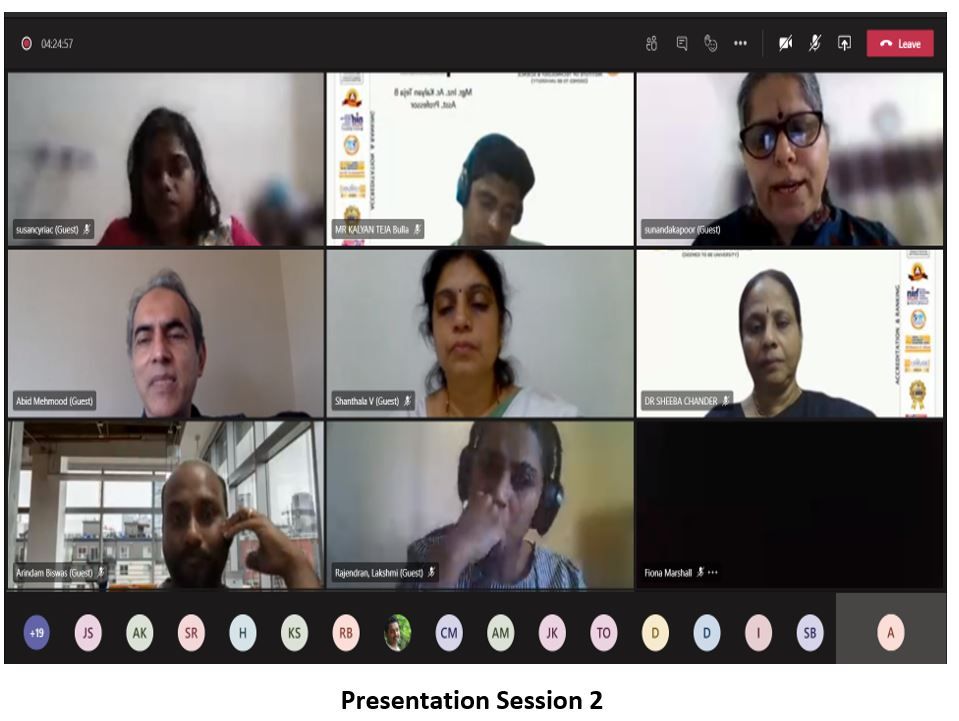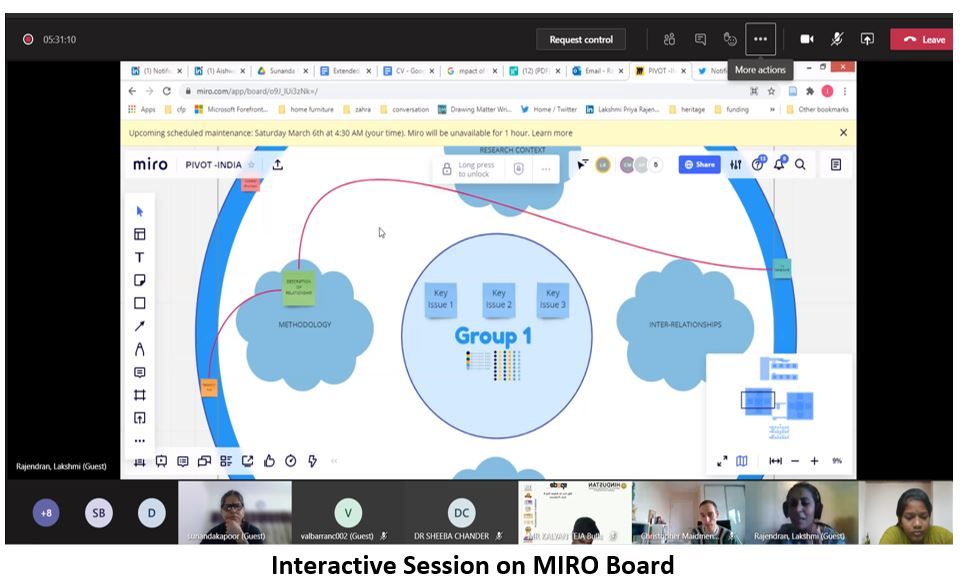-
- Back
-
- Back
-
- Back
-
- Back
-
- Back
-
- Back
-
- Back
-
- Back
Pivot International Workshop India
Pivot International Workshop India
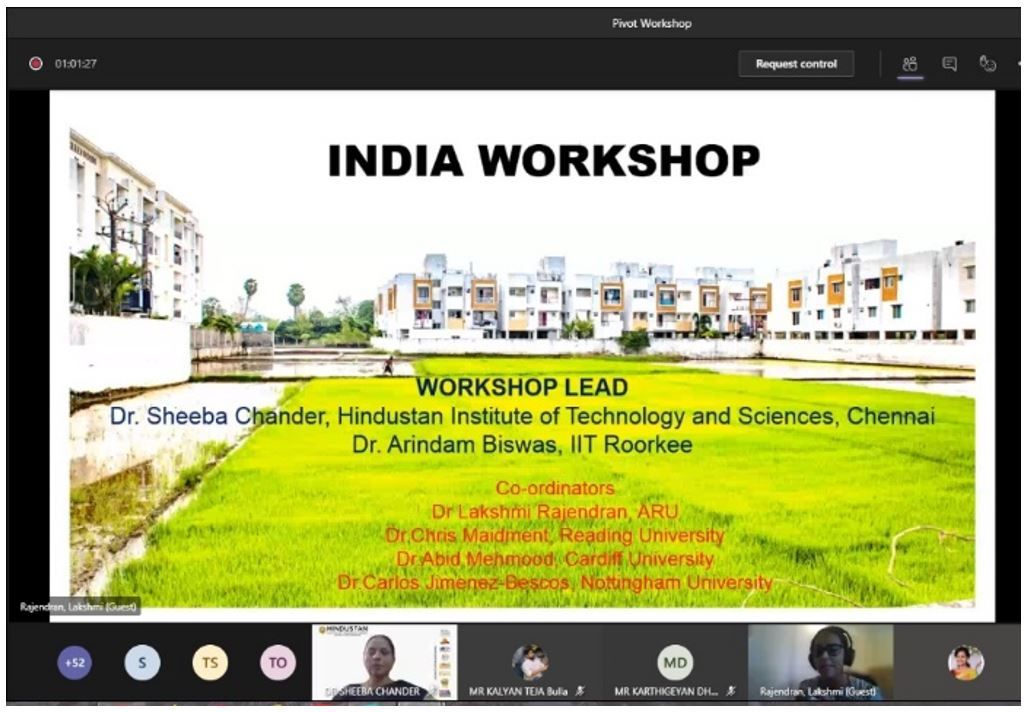
Pivot International Workshop India
The School of Planning, Architecture & Design Excellence conducted an International Workshop on ‘PIVOT Re-visioning Peripheral Geographies: Strategies for Resilient Urban Development in the Global South’ in an online mode through MS Teams on 25 Feb. 2021. The workshop planned by the Frontiers Champion Project and funded by the Royal Academy of Engineering, UK is the first among the series of workshops that will last till April 2021. The project by PIVOT to explore and examine peri-urban regions is multilateral and interdisciplinary having the research focusing on the Global South cities, addressing the challenges of sustainable and resilient urban development. The Partner Countries involved in this project are South Africa, Mexico, Nigeria, UK, Turkey along with India. This workshop in India led by the Indian Academic Partners Dr.SheebaChander, Dean SPADE, HITS and Dr. Arindam Biwas, IIT Roorkeewas attended by Academicians and Researchers from countries across the globe.
The event started with the workshop introduction and briefing by Dr. Lakshmi Rajendran, Senior Research fellow from Anglia Ruskin University, UK and after which the session formally began with the welcome and inaugural address by Dr.SheebaChander, Dean SPADE who is the lead in India PIVOT workshop. The workshop consisted of two parts, the first session was open to public with a keynote speech, panel discussion and participant’s presentation. The second part of the workshop was a closed session with the participants, where the participants were divided for discussions in breakout rooms and MIRO board was used for open discussion.
The keynote speaker of Session 1 was Prof. Sudhir ChellaRajan, Dept. of Humanity and Social Sciences, IIT Madras. Prof. Sudhir has a doctorate in Environmental Science and Engineering from the University of California and Los Angeles and has worked in Government Research Consultancies, NGOs and Academia as a Senior Official. His presentation was based on Peri-urbanization and climate-environment interactions which is his field of interest. Peri-urban areas are zones of transition from rural to urban land uses located between the outer limits of urban and regional centers and the rural environment. Prof. Sudhir showcased his study on Periurban Dynamics and sustainability by taking a case study on Chennai’s Katchipedu, Sriperumbudur area and also discussed the proposals and ongoing work in Katchipedu. The next part of the session was the participant’s presentation.
Participants’ Presentation Details:
| NAME | INSTITUTION/DESIGNATION | TOPIC |
| Mr. Ashish Prabhakar | Doctoral Scholar, University of Hyderabad | ‘Hope in my backyard – Governance, NRM and the waste conflict in Vilappilsala’ |
| Dr.DevanjanKhuntia | Asst. Prof, GD Goenka University, Gurugram | ‘Inert City and the Periphery as the New Site of Protest’ |
| Ms. Fathima Zehba | NIT, Calicut | ‘Quality of Life Variations in Urban and Peri-Urban Settlements’ |
| Ms. Shanthala V | Asst. Prof, BMS College of Architecture, Bangalore | ‘Assessing Social Amenity Site Provision in Emerging Residential Districts on Urban Periphery – Case of Bangalore’ |
| Prof. Sunanda Kapoor | School of Architecture & Design, Manipal University Jaipur | ‘Peri-Urban areas of Chandigarh’. |
| Ms. Swati Sharma | PhD Scholar, SPA, Bhopal | ‘Impact of governance on the dynamics of peri-urban areas.’ |
Presentation was followed by the question and answer session mediated by Dr. Abid Mehmood and Dr. Carlos Jimenez. Session 2 was a closed session with participants and team members aiming at collective thinking and co-production. It aimed at developing interactive skills with miro board discussion where every participant is open to share and explore their views on Peri-Urban scenarios and bring interrelationships between ideas. The session ended by consolidating the outcomes of the discussions done by the presenters. Overall, it was a very interactive workshop session especially the live discussions by the researchers from across the globe. The workshop ended with the coordinator Dr.SheebaChander, Dean (SPADE) thanking the participants and the team. The outcome of the workshop will be published in the consolidation report of PIVOT, once all the workshops and conferences which is a part of the project is over. SPADE thanks the management and the higher authorities for giving an opportunity to conduct and participate in such workshops.
